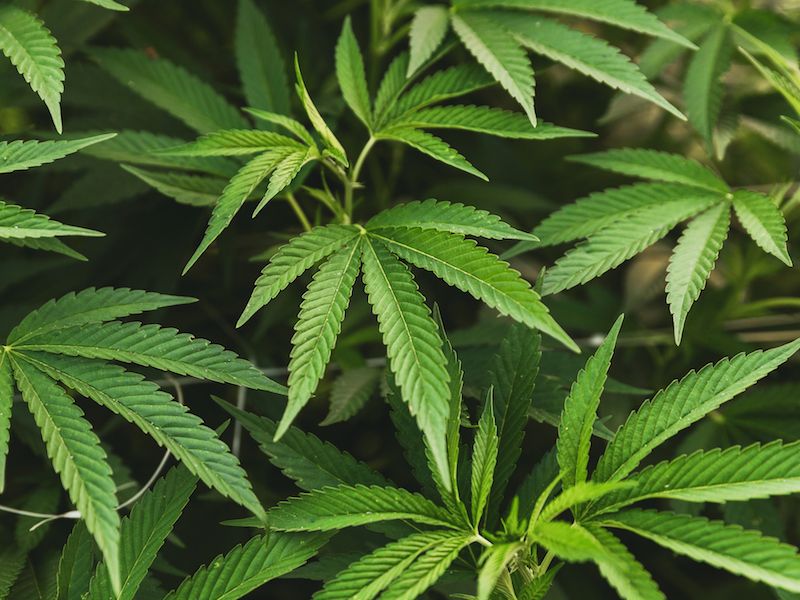
Public opinion about marijuana and cannabinoids have changed incredibly over the last few decades. THC, cannabinoids, and even marijuana are legal for medical use in most states. Ten or fifteen years ago it would have been unimaginable for pot to be legal for recreational use but some states have even taken this step.
A group of substances originating from the cannabis plant (the marijuana plant, essentially) are known as cannabinoids. New things are being uncovered about cannabinoids every day in spite of their recent legalization in some states. Although we now are beginning to understand the numerous medical positive aspects of these compounds, it has been well known for some time that tinnitus may be activated by cannabinoids.
There Are Several Forms of Cannabinoids
There are many forms of cannabinoids that can be consumed now. It’s not just weed (or Mary Jane, or grass… ok, let’s just all agree right now that marijuana has a significant number of nicknames and move on). Nowadays, THC and cannabinoids can be obtained in pill form, as lotions, as inhaled mists, and lots of others.
The types of cannabinoids available will vary state by state, and under federal law, many types are still illegal if the amount of THC is over 0.3%. That’s why many people tend to be quite careful about cannabinoids.
The issue is that we don’t yet know much concerning some of the potential side effects or risks of cannabinoid usage. One example is the new information about how cannabinoids influence your hearing.
New Research Into Cannabinoids And Hearing
A wide variety of ailments and medical conditions are thought to be helped by cannabinoids, regardless of what you like to call it. Seizures, nausea, vertigo, and more seem to be helped with cannabinoids, according to anecdotally available information. So could cannabinoids help with tinnitus? That’s just what scientists resolved to figure out.
Tinnitus may actually be triggered by cannabinoid use, as it turns out. According to the research, over 20% of study participants who used cannabinoid products reported hearing a ringing in their ears. And that’s in people who had never had tinnitus before. What’s more, marijuana users were 20-times more likely to report experiencing tinnitus symptoms after 24 hours.
Further research indicated that marijuana use could exacerbate ear-ringing symptoms in those who already deal with tinnitus. In a nutshell, there’s some very persuasive evidence that cannabinoids and tinnitus don’t really mix very well.
How Cannabinoids worsen tinnitus
There are a couple of concrete ways that cannabinoids can make your tinnitus experience worse. To start with, the incidents of tinnitus symptoms can become more frequent, you might experience the buzzing or ringing in your ears more persistently. Cannabinoids can also cause tinnitus symptoms to become more overwhelming. Louder ringing that can be much harder to ignore can be the result.
Cannabinoids have also been demonstrated to cause the onset of tinnitus symptoms. To put it another way: after you begin using cannabinoids you could develop tinnitus symptoms even if you didn’t have them before.
It’s Still Unclear What Causes Tinnitus
Just because this connection has been discovered doesn’t inevitably mean the root causes are all that well grasped. It’s clear that cannabinoids can have an effect on the middle ear and symptoms of tinnitus. But what’s causing that impact is far less clear.
But we recognize that using marijuana, unlike other mood altering substances such as alcohol, can cause tinnitus.
Of course, we will keep doing research. Cannabinoids nowadays come in so many options and forms that learning the fundamental link between these substances and tinnitus could help individuals make smarter decisions.
Beware The Miracle Cure
There has certainly been no shortage of marketing hype concerning cannabinoids recently. That’s partly because attitudes are changing about cannabinoids (and, it could also reveal that people are trying to get away from opioid use). But cannabinoids can and at times do produce unwanted results, based upon this new research, and this is particularly true concerning hearing.
You won’t be able to escape all of the cannabinoid fans and evangelists in the world, the marketing for cannabinoids has been especially aggressive.
But this new research certainly suggests a strong link between tinnitus and cannabinoids. So no matter how much advertising you see for CBD oils, if you’re concerned about tinnitus, you should most likely avoid them. It’s worth being careful when the connection between tinnitus and cannabinoids has been so firmly demonstrated.
